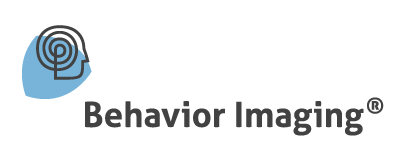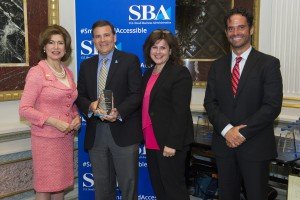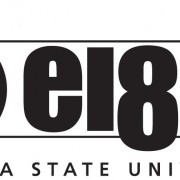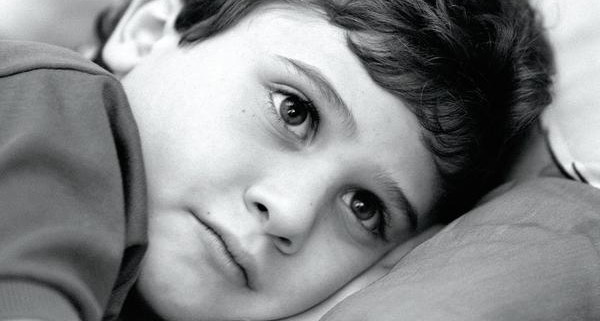On June 15th, 2015, Behavior Imaging graciously accepted the U.S. Small Business Administration’s (SBA) 2015 Tibbetts Award in recognition of their exemplary role in Small Business Innovation Research (SBIR) and Small Business Technology Transfer (STTR) programs. In total, 23 other small businesses, and six individuals were formally honored with their awards in Washington, DC., during a White House ceremony featuring keynote speaker Cady Coleman, an accomplished scientist and NASA Astronaut noted for her six-month expedition to the International Space Station.
About Behavior Imaging
Founded by Ron and Sharon Oberleitner in 2005, Behavior Imaging® was developed as a means of increasing disabled people’s access to care via technology. Having received their son’s autism diagnosis in 1996 at the age of three, the challenges of receiving specialized care for those with intellectual disabilities was a driving factor that hit close to home for the Oberleitners. Since then, Ron and Sharon have dedicated their careers to helping families and organizations improve their accessibility to mental health treatment while producing technological advancements such as Behavior Connect, Behavior Capture App, NODA Autism Diagnosis, and Assessment View while participating in a wide variety of Pharmaceutical “Case Study” Trials.
Derived from its founders’ expertise in medical imaging technology, and inspired by a profound personal connection to autism, Behavior Imaging has the vision, market foresight, and passion to bring to market unique digital health imaging solutions. Behavior Imaging Solutions (BIS) develops imaging and digital health solutions that lead to earlier diagnosis and better treatment options for a variety of behavioral health and special education applications. The company’s revolutionary ‘EHR-light’ video platforms and ‘Behavior Capture apps’ enable remote health and education assessments, improved clinical trial coordination, and the foundation for a global remote autism diagnostic assessment service. Taking four years to win its initial SBIR award, BIS was incorporated in in 2005 to invent and gain meaningful adoption for its Behavior Imaging® technology as a means of increasing disabled people’s access to healthcare via technology.
“Our passion (is) to really help our own child and the growing number of children around the world who have autism,” Ron Oberleitner recently said to the Idaho Statesman, “It’s a crime not to help a family get a diagnosis so they can begin early intervention for their child if they have instincts that something is going wrong.”
Before receiving the SBIR award, neither investors or health and education organizations would commit to Behavior Imaging’s (BIS) innovations due to lack of proof that its solutions could be effectively adopted to improve access for autism diagnosis or treatment, or to improve workflow to treat larger behavior-based disorders. However, after SBIR’s supportive product development and research, BIS was able to demonstrate the effectiveness of its tool. The support of SBIR enabled BIS to garner enough clinical efficacy proof that its technologies are now utilized by leading health organizations across the globe, the military, state departments of education, and at rural clinics and orphanages. Professionals are now using Behavior Imaging to improve people’s lives who suffer from debilitating autism symptoms, or from other behavior and mental disorders.
The majority of the BIS team and its advisers began as volunteers to prototype its innovations, but because of SBIR, the company has been able to make and test commercial-grade innovations. Behavior Imaging Solutions has expanded its revenue by more than 130%, expanded its employee base and partnerships by 80%, and is currently exploring the acquisition of a therapy service-related local company. The company’s technology is actively used in hundreds of schools in 31 states in the US and 4 other countries and is emerging as an important alternative for: 1) critical behavior assessments for students with autism; and 2) cost-effective skill assessment for the nation’s most disabled student population. Cost savings per student have been calculated to save school districts at least $12,000/year.
With the increased incidence of autism, the number of worried parents with developmental-related concerns is also on the rise. Because of this, the growing number of children with autism is putting pressure on an already overtaxed system that includes wait lists for in-clinic assessments stretching several months. Families simply cannot afford to wait. With autism, time is of the essence…
Seeking Collaborators
With NODA there is no waiting. Half the cost of traditional testing methods, NODA is complete within 2-3 weeks in a child’s natural environment, providing a valuable perspective that cannot be easily captured in a clinical test setting.
Currently, the Barrow Neurological Institute at Phoenix Children’s Hospital is collaborating with the Southwest Autism Research & Resource Center (SARRC), Georgia Tech and Behavior Imaging to introduce a new diagnostic service that helps patients gain access to a diagnosis, treatments and services sooner.
Behavior Imaging is also exploring further collaborations with organizations, autism centers, children’s hospitals and practices focused on autism that are interesting in participating in our Market Validation Research Studies that cooperates for the best interest of serving the Autism community.
We welcome the opportunity to collaborate with you!
Contact USBehavior Imaging Solutions
413 W. Idaho St., Boise, ID 83702
https://behaviorimaging.com
About the Tibbetts Award
Named for the late Roland Tibbetts, widely accredited as being the ‘Father’ of today’s SBIR/STTR programs, the annual Tibbetts Awards are presented to leaders from all over the United States who have been instrumental in supporting the success of the programs and/or utilizing SBIR/STTR investment to develop an ‘idea’ into a product or service that benefits the federal government’s research and development needs, the general public’s well being, and the nation’s economy through technological innovation and the creation of high quality jobs – sometimes in newly created industries.
About the Programs
The SBIR/STTR programs represent the nation’s largest source of early stage research and development funding for small businesses. The programs are administered by the SBA in collaboration with 11 federal agencies, which collectively supported more than $2.5 billion in federal research and development funding in fiscal year 2014. Additional information about each program can be found at www.sbir.gov.

 Maria Contreras-Sweet, Administrator of the Small Business Administration and Javier Saade, the SBA’s Associate Administrator leading its Office of Investment and Innovation with Behavior Imaging founders Ron and Sharon Oberleitner
Maria Contreras-Sweet, Administrator of the Small Business Administration and Javier Saade, the SBA’s Associate Administrator leading its Office of Investment and Innovation with Behavior Imaging founders Ron and Sharon Oberleitner



































































































































































































































































